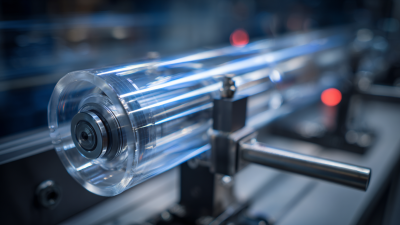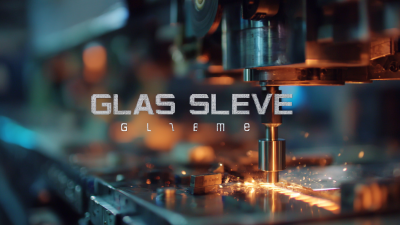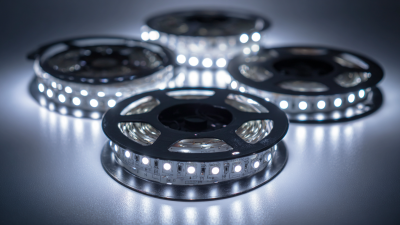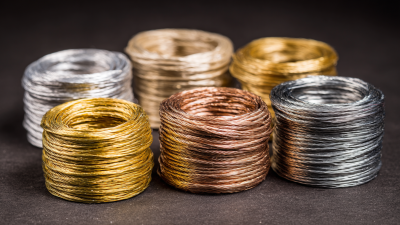As the global demand for sustainable packaging solutions continues to rise, innovative technologies like Glass Sleeve are at the forefront of the industry's evolution. According to a recent report by Smithers Pira, the sustainable packaging market is projected to reach $500 billion by 2025, highlighting a significant shift towards eco-friendly alternatives. Glass Sleeve technology offers a compelling solution by minimizing plastic usage while enhancing aesthetic appeal and product safety.
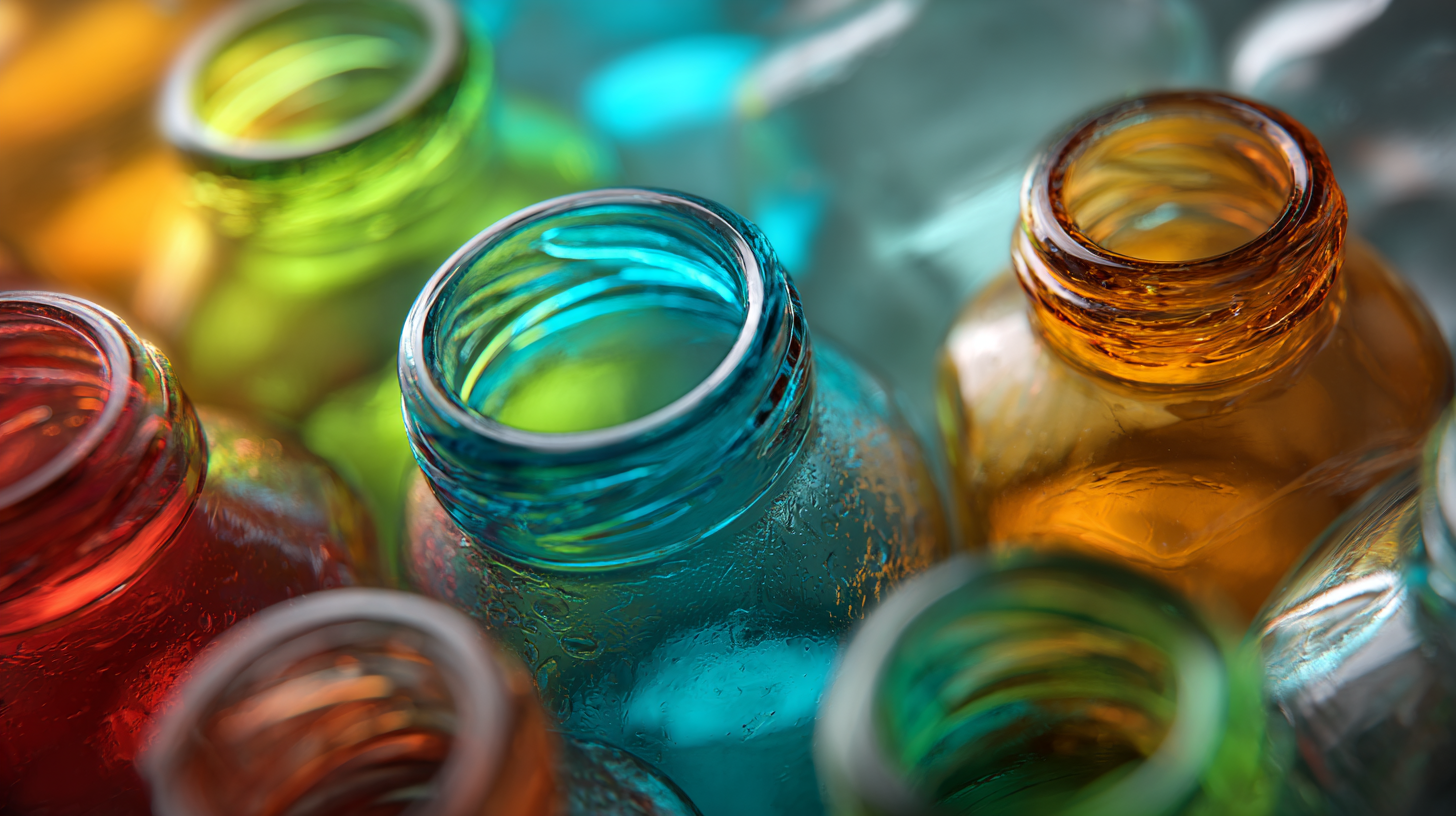
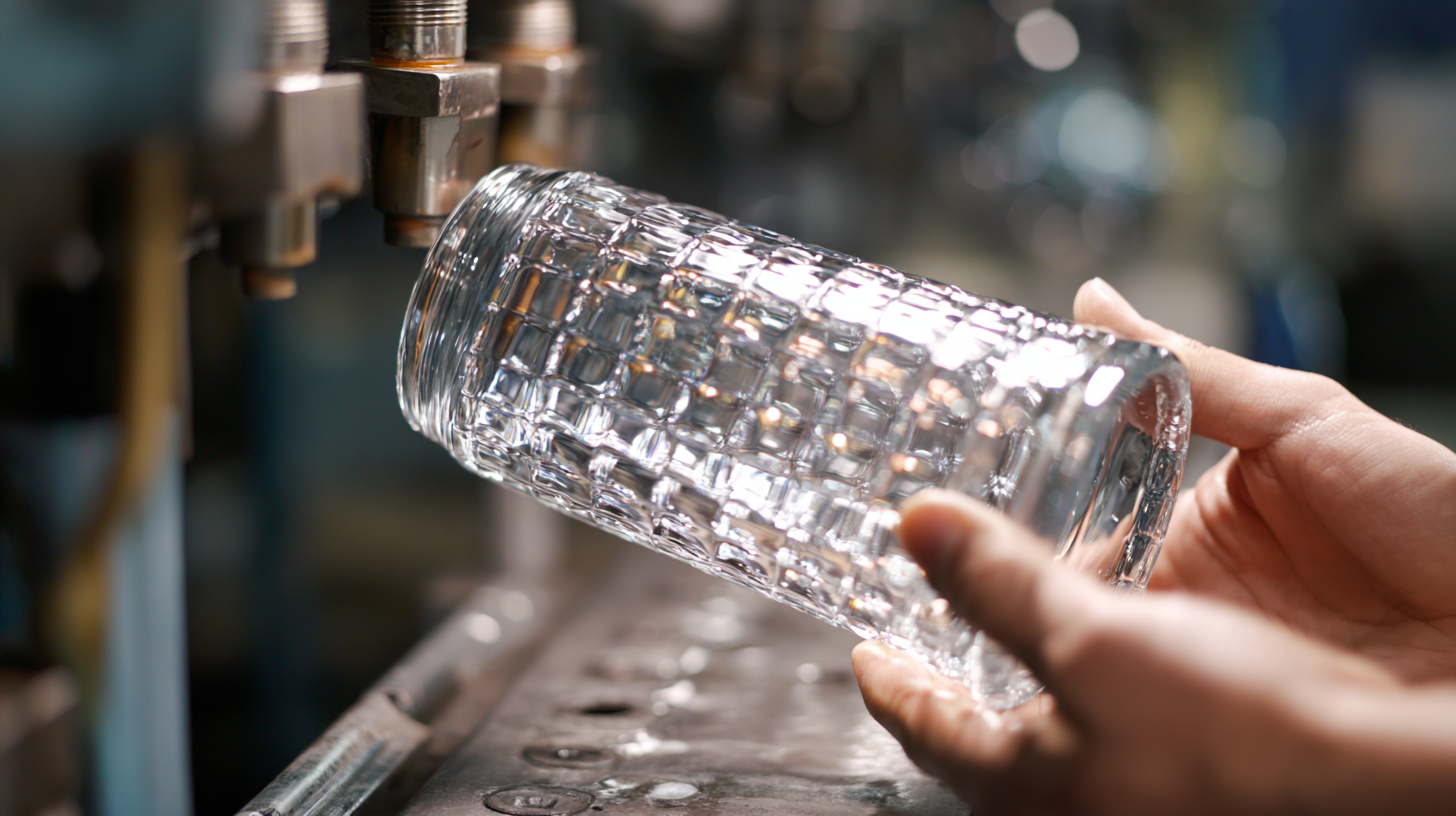 Glass sleeve technology represents a significant advancement in sustainable packaging solutions, particularly in its ability to reduce plastic waste. By utilizing glass, a recyclable and non-toxic material, this technology minimizes the reliance on plastic packaging that typically contributes to environmental degradation. Glass sleeves provide a robust alternative, capable of preserving the quality of products while offering consumers an eco-friendly choice that aligns with growing environmental concerns.
Glass sleeve technology represents a significant advancement in sustainable packaging solutions, particularly in its ability to reduce plastic waste. By utilizing glass, a recyclable and non-toxic material, this technology minimizes the reliance on plastic packaging that typically contributes to environmental degradation. Glass sleeves provide a robust alternative, capable of preserving the quality of products while offering consumers an eco-friendly choice that aligns with growing environmental concerns.
One of the primary advantages of glass sleeve technology is its durability and reusability. Glass materials can be recycled indefinitely without losing quality, which starkly contrasts with single-use plastics that often end up in landfills or oceans. Moreover, the aesthetic appeal of glass packaging can enhance product visibility and attract environmentally-conscious consumers. By adopting glass sleeve technology, manufacturers not only meet the demand for sustainable products but also play an active role in reducing the overall carbon footprint associated with plastic production and disposal. This shift towards responsible packaging practices highlights the crucial role of innovative materials in shaping a more sustainable future.
The implementation of glass sleeve technology in packaging has emerged as a groundbreaking solution that significantly enhances product freshness and safety. According to a market research report by the Glass Packaging Institute, glass is non-toxic and inert, making it an ideal candidate for preserving the quality of various products, particularly food and beverages.
The impermeable nature of glass sleeves prevents oxygen and moisture from compromising the integrity of perishable goods, thus extending shelf life. Research indicates that products packaged in glass can stay fresh up to 25% longer compared to those in plastic, reflecting a dramatic improvement in quality retention.
In terms of safety, glass sleeves minimize the risk of chemical leaching, a concern frequently associated with plastic packaging. The World Health Organization has highlighted that certain plastic materials can release harmful substances into food products, posing health risks to consumers. In contrast, glass is not only safer for food storage but also recyclable, contributing to sustainability goals. According to a 2022 study from the European Container Glass Federation, 90% of glass packaging can be recycled without loss of quality, making it a comprehensive solution for eco-conscious brands aiming to enhance product safety while maintaining environmental responsibility.
Glass sleeve technology is making significant strides in promoting a circular economy within the packaging industry. By utilizing glass sleeves, brands can enhance the recyclability of their products, as glass is infinitely recyclable without losing its quality. This attribute not only reduces waste but also minimizes the need for raw materials, aligning perfectly with circular economy principles. When a product in a glass sleeve is returned or recycled, the sleeve can be processed and reused in new manufacturing, contributing to a closed-loop system that benefits both the environment and the economy.

Furthermore, glass sleeves serve to elevate the aesthetic appeal of packaging while maintaining functionality. They provide a robust barrier against contamination, preserving product integrity and reducing spoilage. This extends the lifecycle of products, leading to reduced waste. By encouraging consumers to return and recycle, glass sleeve technology fosters a culture of sustainability and responsibility, making it easier for businesses to demonstrate their commitment to eco-friendly practices. In this way, glass sleeves not only offer innovative packaging solutions but also play an essential role in driving the shift towards a more sustainable and circular economy in packaging.
The aesthetic appeal of packaging plays a crucial role in consumer purchasing decisions, especially as sustainability becomes a key factor in market choices. According to a recent report by the Sustainable Packaging Coalition, over 67% of consumers are willing to pay more for sustainable packaging that also offers visual appeal. This indicates a significant market shift where aesthetics and ecological responsibility intersect. Glass sleeve technology, in particular, enhances both the visual allure and the sustainable profile of products, aligning with the growing consumer preference for appealing yet eco-friendly options.
Furthermore, the integration of glass sleeves allows brands to utilize attractive designs that highlight their commitment to sustainability. A survey conducted by Nielsen found that 73% of millennials are willing to switch brands if they perceive a product's packaging to be more environmentally friendly, not to mention visually engaging. In this context, glass sleeves can serve as a canvas for captivating graphics and branding while also providing an eco-conscious alternative to traditional materials. As companies innovate with sustainable packaging solutions, the dual focus on aesthetics and environmental impact is proving to be a compelling strategy to attract and retain eco-aware consumers.
| Dimension | Value |
|---|---|
| Consumer Preference for Sustainable Packaging (%) | 75 |
| Increase in Brand Loyalty Due to Aesthetic Appeal (%) | 60 |
| Recyclability of Glass Sleeves (%) | 100 |
| Consumer Awareness of Glass as Sustainable Material (%) | 85 |
| Reduction in Carbon Footprint Compared to Plastic (%) | 30 |
| Market Growth Rate for Glass Packaging (%) | 8 |
The adoption of glass sleeve technology in packaging is increasingly recognized not only for its environmental benefits but also for its cost-effectiveness. According to a recent report by the Packaging Association, businesses that implement glass sleeve solutions can see a reduction in packaging waste by up to 40%. This significant decrease not only aids in sustainability efforts but also translates into lower disposal costs for companies. Furthermore, the durability of glass sleeves extends the shelf-life of products, reducing losses due to spoilage and returns, which can collectively improve the bottom line.
Additionally, a study conducted by the Sustainable Packaging Coalition indicated that businesses shifting to glass sleeves experience an average of 15% savings in overall packaging costs over five years. These savings primarily arise from decreased material costs, effective branding opportunities, and enhanced consumer appeal, leading to increased sales. Companies using glass sleeves are finding that the initial investment pays off quickly, as consumers are often willing to pay a premium for sustainably packaged products. This trend underscores the dual benefit of implementing glass sleeve technology: fostering sustainability while enhancing financial viability for businesses.
